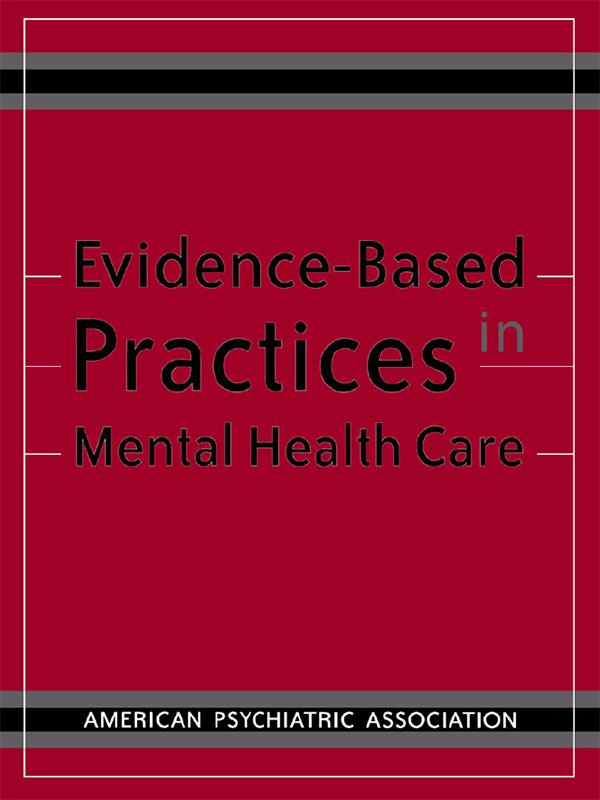
Evidence-Based Practices in Mental Health Care
- Robert E. Drake, M.D., Ph.D.,
- Howard H. Goldman, M.D., Ph.D.
As the first attempt to synthesize the movement toward widespread implementation of evidence-based mental health practices, this groundbreaking collection articulates the basic tenets of evidence-based medicine and shows how practices proven effective by clinical services research could improve the lives of many people.
Intended to stimulate much-needed public discussion, these remarkable contributions cover both general issues, such as
Implementing practices in routine mental health settings, including strategies for disseminating evidence-based practices to staff members
Ensuring that efforts to implement such practices are informed by the knowledge and experience of administrators, clinicians, patients, and advocates
ntegrating evidence-based practices with the recovery model and focusing on guidelines and algorithms for pharmacologic treatment of people with severe mental illness
Identifying the policy implications of the movement, particularly in public-sector settings, and describing eight courses of action for addressing the gap between science and practice
and specific practices, such as
Describing critical components of practices for which substantial evidence exists, such as supported employment, dual diagnosis services, and assertive community treatment
Developing an evidence base for particular populations, such as children and adolescents and geriatric patients; and for clinical subgroups, such as patients with severe mental illness and posttraumatic stress disorder-and implementing a range of practices for each population
Public discussion and debate are critical for several reasons: to show how evidence-based care can be used to improve the quality of our services and the quality of life for our patients; to explain that patients' individual characteristics, preferences, and autonomy are highly valued by clinicians who use evidence-based practices; and to allay fears of patients, practitioners, administrators, and other stakeholders about being excluded from the decision-making process.
This unique and densely informative volume will be welcomed by mental health care professionals and by lawmakers, planners, administrators, and others who are charged with the responsibility of providing effective care to vulnerable populations.
| DOI: | https://doi.org/10.1176/appi.books.9780890427651 |
| Publisher: | American Psychiatric Publishing |
| Copyright Year: | 2003 |
| Print Date: | March 31, 2003 |
| Online Date: | December 5, 2024 |